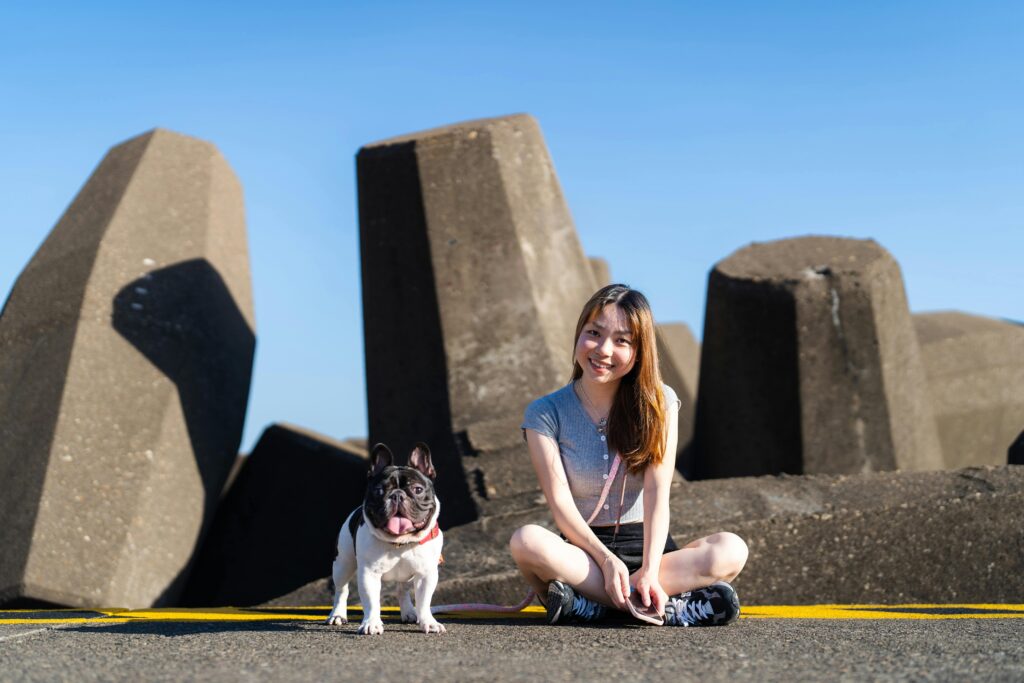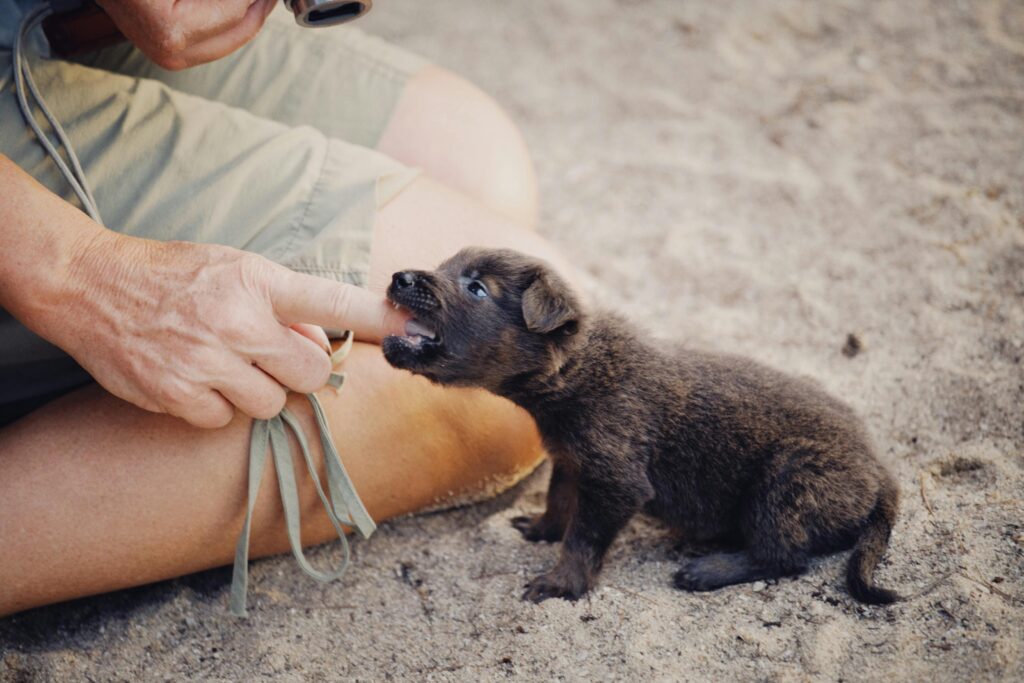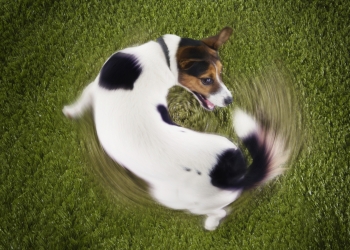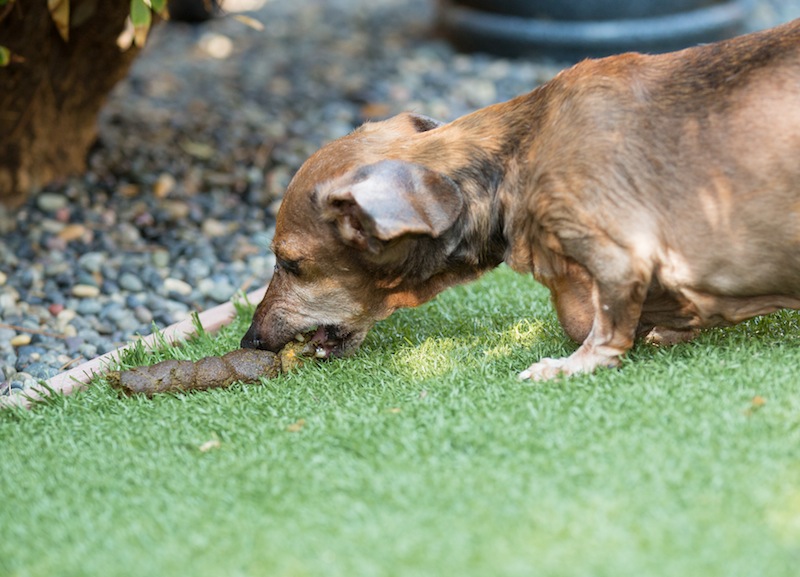
Dogs are generally well-behaved and responsive to training, but have you ever noticed your pet acting a little bit odd? Maybe even out of character?
Unfortunately, our companions don’t have the ability to verbally communicate with us humans, and while they might choose to bark at us to try to explain their strange actions, we won’t understand them.
Rest assured, we’ve analyzed some ‘weird’ dog behaviors below, so you can better understand them next time and know when to take action!
Pressing Their Head
Seeing your dog press their head against the wall is a concerning behavior that requires immediate veterinary attention. This action is not only peculiar and abnormal, but can be a sign of serious underlying issues.
Possible Causes:
- Brain Disease: Conditions such as tumors or encephalitis can cause dogs to press their heads against surfaces due to discomfort or confusion.
- Other Organ Disease: A disease that effects the function of the liver and kidneys can lead to encephalitis, causing the same signs as brain disease.
- Toxic Poisoning: Exposure to toxic substances can lead to neurological symptoms, including head pressing.

How to Help:
If you notice your dog pressing their head against the wall or any other surface, it’s crucial to seek emergency veterinary care immediately. This behavior often indicates a serious health problem that needs prompt diagnosis and treatment. Quick intervention can make a significant difference in your dog’s recovery and overall health.
Biting

Biting is a common behavior in puppies as they explore their environment and learn how to communicate – typically occurring while they’re teething. However, if your puppy bites frequently or without apparent reason, it’s important to address this behavior early to prevent future issues.
Possible Causes:
- Puppy Exploration and Play: Puppies often bite during playtime or training as they learn about their world and social interactions.
- Anxiety or Fear: Mature dogs may bite out of anxiety, fear, or as a reaction to perceived threats.
- Aggression: In some cases, biting can be a sign of aggression.
- Pain or Disease: If your normally gentle dog has begun biting or snapping, they may be reacting to pain or disease in their body.
How to Help:
For puppies, consistent training and positive reinforcement can help curb biting behaviors. Teaching bite inhibition and providing appropriate chew toys are effective strategies.
However, for mature dogs, it’s crucial to identify the underlying causes of biting, such as anxiety or fear, and address them accordingly. Behavioral training, socialization, and, if necessary, consulting with a veterinarian or a professional dog trainer can help manage and reduce biting incidents. Understanding and addressing the root cause is key to preventing further issues and ensuring the safety of both your dog and others.
Going Round In Circles

Dogs often enjoy chasing their tails, and many like to circle before settling down on their beds. However, if your dog frequently circles and seems unable to stop, it may indicate an underlying health issue.
Possible Causes:
- Ear Infections: Infections in the ear can cause discomfort and balance issues, leading to circling behavior.
- Idiopathic Vestibular Syndrome: This condition affects the inner ear and balance, causing disorientation and repetitive circling.
- Brain Tumor (rare): Although rare, a brain tumor can cause neurological symptoms, including circling.
- Mental Health Concerns (rare): While rare, dogs can have mental health conditions such as Obsessive-Compulsive Disorder (OCD) that can appear as circling or other odd behaviors.
How to Help:
If your dog is circling more than usual, appears disoriented, or isn’t actively chasing its tail, it’s important to consult your veterinarian. Early diagnosis and treatment can address the underlying cause and help your dog feel better. Regular check-ups and monitoring for any additional symptoms are crucial in ensuring your dog’s well-being.
Eating Their Own Poop
While it may seem distasteful to us, eating poop can be a common behavior in dogs. Puppies often observe their mothers cleaning them by ingesting feces and may mimic this behavior.

Possible Causes:
- Behavioral Mimicking: Dogs, especially puppies, may imitate the actions they see from their mothers or other dogs.
- Territory Marking: Dogs defecate in certain areas as a way of marking territory. Removing the feces from an area by eating it is also a way of marking (or un-marking) territory.
- Nutritional Deficiency: Consuming feces, known as coprophagia, can sometimes indicate a lack of essential nutrients in a dog’s diet.
How to Help:
If your dog frequently eats their own feces, it’s important to consult with your veterinarian to rule out any underlying nutritional deficiencies or health issues. Your vet may recommend dietary adjustments or products to address any deficiencies. Additionally, maintaining a clean environment by promptly removing feces can discourage this behavior. Proper nutrition and regular health check-ups are crucial for ensuring your dog’s well-being and preventing this and other unwanted behaviors.

